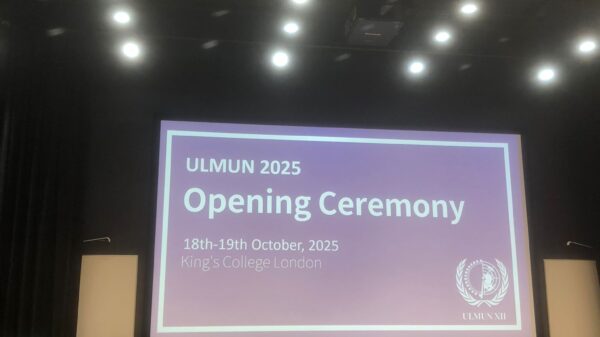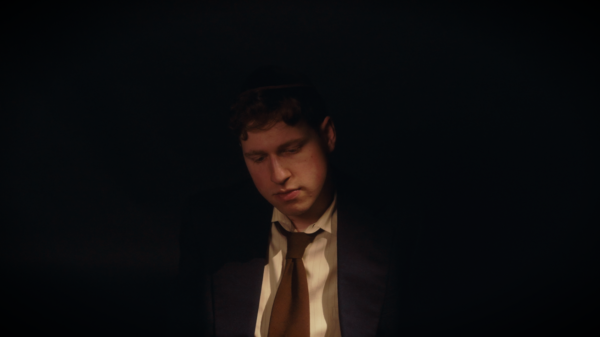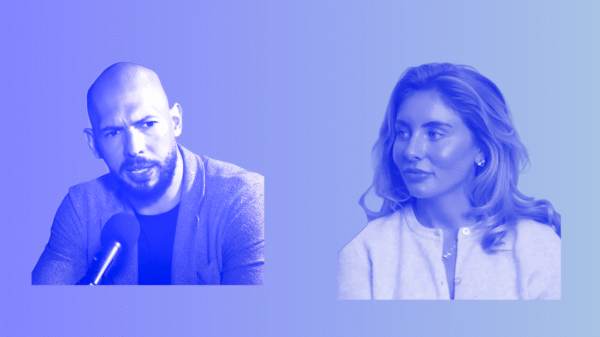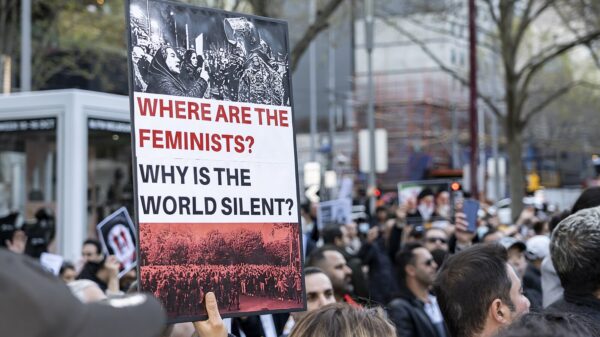Staff Writer Angelika Etherington-Smith critically assesses the growing problem of the objectification of men in Hollywood.
The last year has been strongly dominated by many discussions of the presence and role of feminism in pop culture. Whether that is the ‘Feminism 101’ monologue in Barbie or the TikTok furore caused by ‘Simone Biles’ husband’, feminist philosophy, both in theory and in action, has been widely discussed by many. Yet there is one, seemingly obvious, downfall that has consistently been hindering the movement. The sexualisation of men, male actors specifically, has become an ever-pressing problem in the world of pop culture with few instances exemplifying it to the extent of the recent, and rampant, sexualisation of Jacob Elordi.
Many know the actor as the love interest from Netflix’s ‘Kissing Booth’ trilogy and his performance as Nate in the two seasons of HBO’s ‘Euphoria’. Recently, he has flexed his acting chops in two of the highest-rated movies of the season, starring as the charming Felix in ‘Saltburn’ by director Emerald Fennel and Elvis Presley in Sofia Coppola’s ‘Pricilla’.
One can only wish the best of luck to the rising movie star of the 2020s, but there is one significant element that we can no longer ignore. This man has been consistently objectified and sexualised throughout his career, with recent events easily crossing the line into harassment. Though this is not uncommon in Hollywood business, it is a growing problem that more and more male actors are facing, without the support of managers and audiences to help fix it.
Elordi has most recently been in the news for allegedly assaulting Joshua Fox, an Australian radio show producer. The BBC paints the incident as Elordi’s overreaction to “a radio prank gone wrong”, yet the events they recount paint a drastically different picture. Without discussing arrangements, Fox approached Elordi near a local beach’s beer garden as the actor was leaving, and handed him a container labelled “Jacob Elordi’s bathwater”, explaining that he wanted to give it as a present to the female presenter on his radio show. The ‘Saltburn’ star politely refused and demanded that Fox delete the footage of the exchange, after which the situation escalated.
This article, however, is not an exploration of this incident, but rather a discussion of a number of events preceding it. The unstoppable torrent of TikTok’s sexualising the star following the release of the movie on Amazon Prime, with many “THE Jacob Elordi edit” videos gathering millions of views on the platform. The sale of many ‘Jacob Elordi bathwater’ candles on Etsy to the point of the official Cosmopolitan blog sharing multiple links.
One of the most notable instances of active sexualisation of the actor has been perpetuated by none other but the pillar of American pop culture: Saturday Night Live (SNL). In the ninth episode of the most recent season, Elordi was the guest host of the evening, and the premise of every single sketch with him can be summed up in 5 words: “He’s hot. Nothing else matters.”
With a media giant focusing in on his looks alone, the question comes “Why did they feel comfortable doing so?” Is it because of the millions of posts on TikTok coming from fans of all ages raging about his physique in ‘Euphoria’ and his continued semi-naked presence throughout ‘Saltburn’? Is it because as early as 2021 Ellen Degeneres felt comfortable sexualising him on her show, suggesting that the key reason for directors to insist on his lack of clothing in the scenes is “Because look at you, that’s why”? Or is it because institutions like SNL and Ellen, alongside many other media outlets – online, TV and print, have historically crossed lines when it comes to male guests?
In 2021, ‘Bridgerton’’s Regé-Jean Page hosted SNL and the next morning Vanity Fair ran the headline “Saturday Night Live’s as Thirsty for Bridgerton’s Regé-Jean Page as You”, referring to the consistent sexualisation of the actor as “The ‘extremely hot sex man’ hosted a scorching episode of SNL”.
In 2009, Ellen talked non-stop about how “cute” and “good-looking” David Beckham was, dismissing his social anxiety and “shyness” by showing a picture of him modelling for Armani to a whooping audience of middle-aged mums and noticeably awkward men.
In 2022, even the self-proclaimed “Internet Daddy” Pedro Pascal was visibly uncomfortable when approached on the red carpet by a woman asking him to read “Twitter thirst tweets” and he politely declined, describing them as “dirty”.
The normalisation of such displays of mindless sexualisation of male actors, stars and general celebrities has grown from mildly frustrating and increasingly embarrassing to actively dangerous, with wild escalations following Paul Mescal’s interactions with the public. From a female fan commenting on Normal People, “I didn’t think the show was any good but I saw your willy and I have a photo!” to him sharing with The Standard that when taking a picture with a fan “[she] put her hand on my ass… I remember feeling up and feeling, just like, fury”.
This is not a joke. This is not some funny, “inconsequential” sketch with a punchline being the looks of the actor. This is a consistent, corroding culture of sexualisation that leads to and crosses the lines of sexual harassment and sexual assault.
This article started by noting the verbal and cultural role of feminism in the current zeitgeist. And it is notable how much of it is missing in discussion around the cases of these men. Notably, there are some voices online, coming both from big creators and accounts with only a couple of followers pointing out the hypocrisy of such situations. The cases of female celebrities being asked sexist questions, or put in uncomfortable situations by male fans/interviewers/presenters have become infamous on various social media platforms, yet when the tables are turned, many fans, the majority being female, tend to dismiss similar situations starring their favourite male stars.
This growing hypocrisy is reaching a boiling point, and, in some perverse way, a devil’s advocate could claim that there is finally equal treatment of both sexes in Hollywood. This is, of course, the wrong conclusion to the whole debacle. This should not be seen as some “angry feminist retribution” for decades of sexism faced by female stars. This should not be mistakenly touted as a “win for equality”. This behaviour must be labelled what it is: unacceptable and dangerous, irrespective of whether the person subjected to it is male or female. Maybe we all do need to re-watch the conclusion of Barbie; many of us still do need a crash course in ‘Feminism 101’.



















